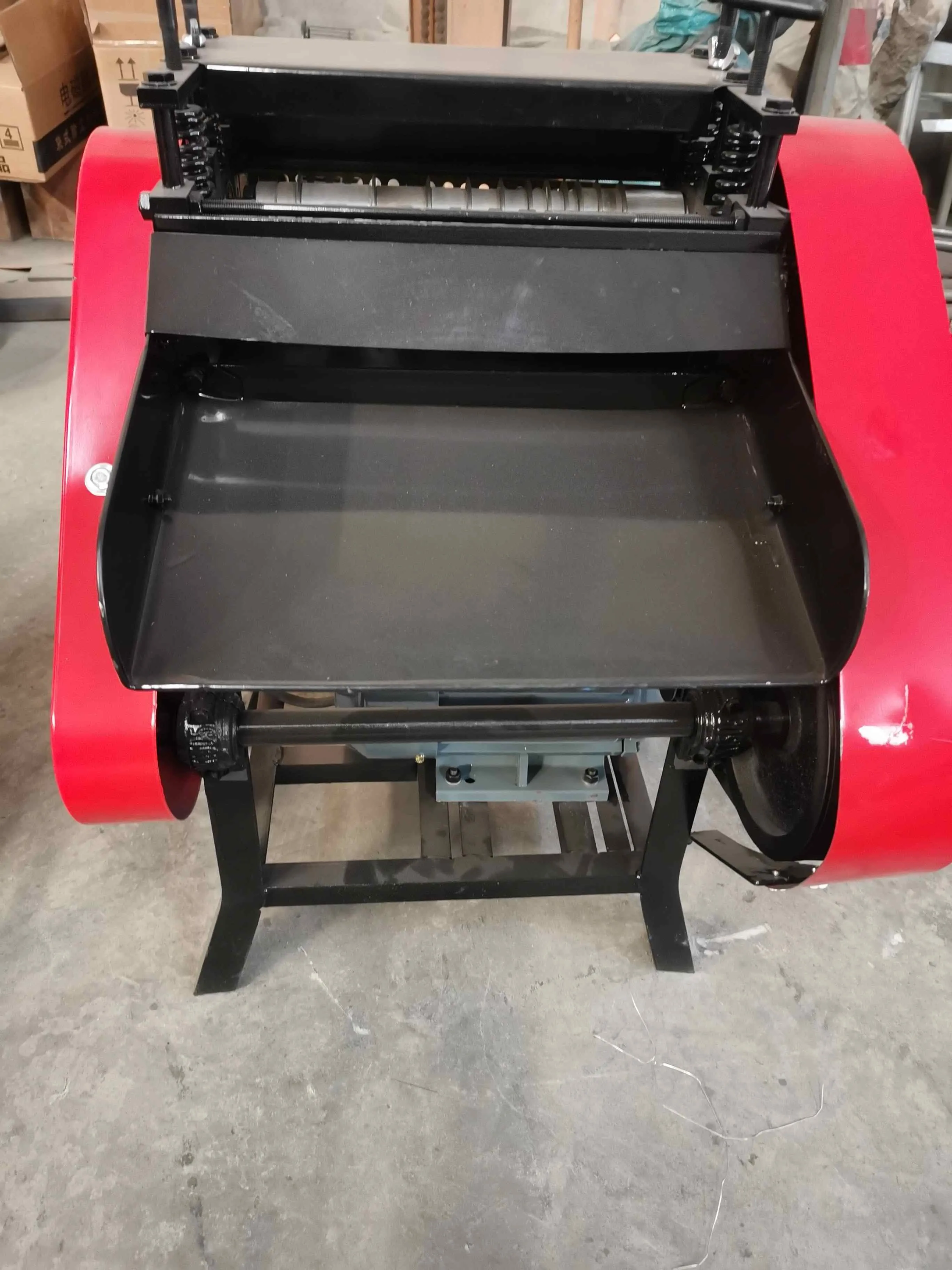

វិច្ឆិកា . 20, 2024 01:41 Back to list
The Evolution and Importance of Shredder Metal Machines
In the world of industrial recycling, shredder metal machines have emerged as essential equipment for managing metal waste efficiently. These powerful machines are designed to reduce large metal pieces into smaller, more manageable fragments, allowing for easier processing and recycling. The significance of shredder metal machines can be seen in various industries, from automotive and construction to electronics and manufacturing.
Understanding Shredder Metal Machines
Shredder metal machines utilize sharp, rotating blades to cut and crush metal into smaller sizes. These machines vary in size and strength, ranging from small units for light gauge metals to massive industrial shredders capable of handling thick steel plates and whole vehicles. The ability to process diverse materials such as aluminum, copper, and stainless steel makes these machines versatile tools for recyclers.
One of the key components of a shredder metal machine is its rotor, which spins at high speeds, facilitating the shredding process. The machine also typically includes a conveyor system that transports materials to and from the shredding chamber. When metals are input into the shredder, they are automatically fed into the rotor, which effectively chops and crushes them. Following this, magnets and air classifiers can help separate ferrous and non-ferrous metals, improving the purity of the recovered materials.
Environmental Impact and Recycling
The environmental impact of metal shredding cannot be overstated. With increasing global awareness of the need for sustainable practices, shredder metal machines play a pivotal role in reducing waste and conserving resources. Recycling scrap metal helps divert materials from landfills, decreases the need for virgin metal extraction, and minimizes energy consumption associated with metal production.

Recycling metals significantly reduces greenhouse gas emissions compared to mining and processing raw materials. For instance, recycling aluminum saves up to 95% of the energy needed to produce new aluminum from bauxite ore. By using shredder metal machines efficiently, industries can contribute to a circular economy where materials are kept in use for as long as possible.
Applications and Innovations
Shredder metal machines find applications in a variety of settings. In the automotive industry, they are crucial for recycling end-of-life vehicles (ELVs), allowing for the recovery of valuable materials such as steel, aluminum, and other metals. In construction, these machines help clear job sites of metal debris, ensuring a safer and more efficient workspace.
Innovations in shredder technology are continually emerging, aimed at increasing efficiency and reducing operational costs. Advanced models incorporate features such as automated feeding systems, sound reduction technologies, and improved safety measures, making them even more effective tools for recycling facilities.
Conclusion
In conclusion, shredder metal machines represent a vital aspect of modern recycling processes. Their ability to efficiently break down metal waste facilitates the recovery of valuable resources, supports environmental sustainability, and enhances the overall efficiency of waste management operations. As industries continue to evolve and adopt more sustainable practices, the role of shredder metal machines will undoubtedly expand, paving the way for a greener future in metal recycling. With their capacity to revolutionize how we handle metal waste, these machines are not just tools—they are key players in fostering a sustainable planet.
Latest news
Troubleshooting Common Eddy Separator Problems
NewsJul.04,2025
The Role of Metal Recycling Plants in Circular Economy
NewsJul.04,2025
The Impact of Recycling Line Pickers on Waste Management Costs
NewsJul.04,2025
Safety Features Every Metal Shredder Should Have
NewsJul.04,2025
How Industrial Shredders Improve Waste Management Systems
NewsJul.04,2025
How Cable Granulators Contribute to Sustainable Recycling
NewsJul.04,2025